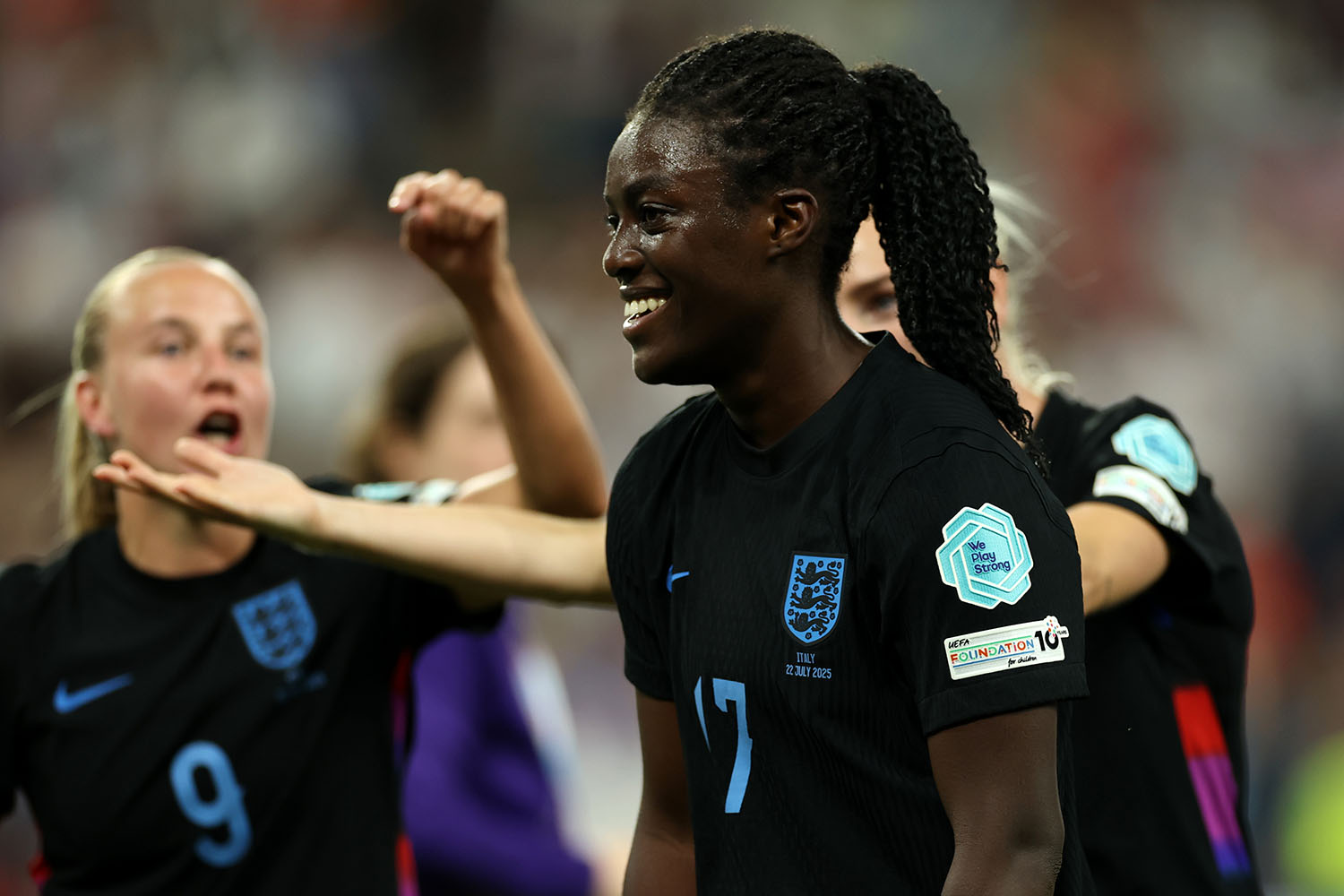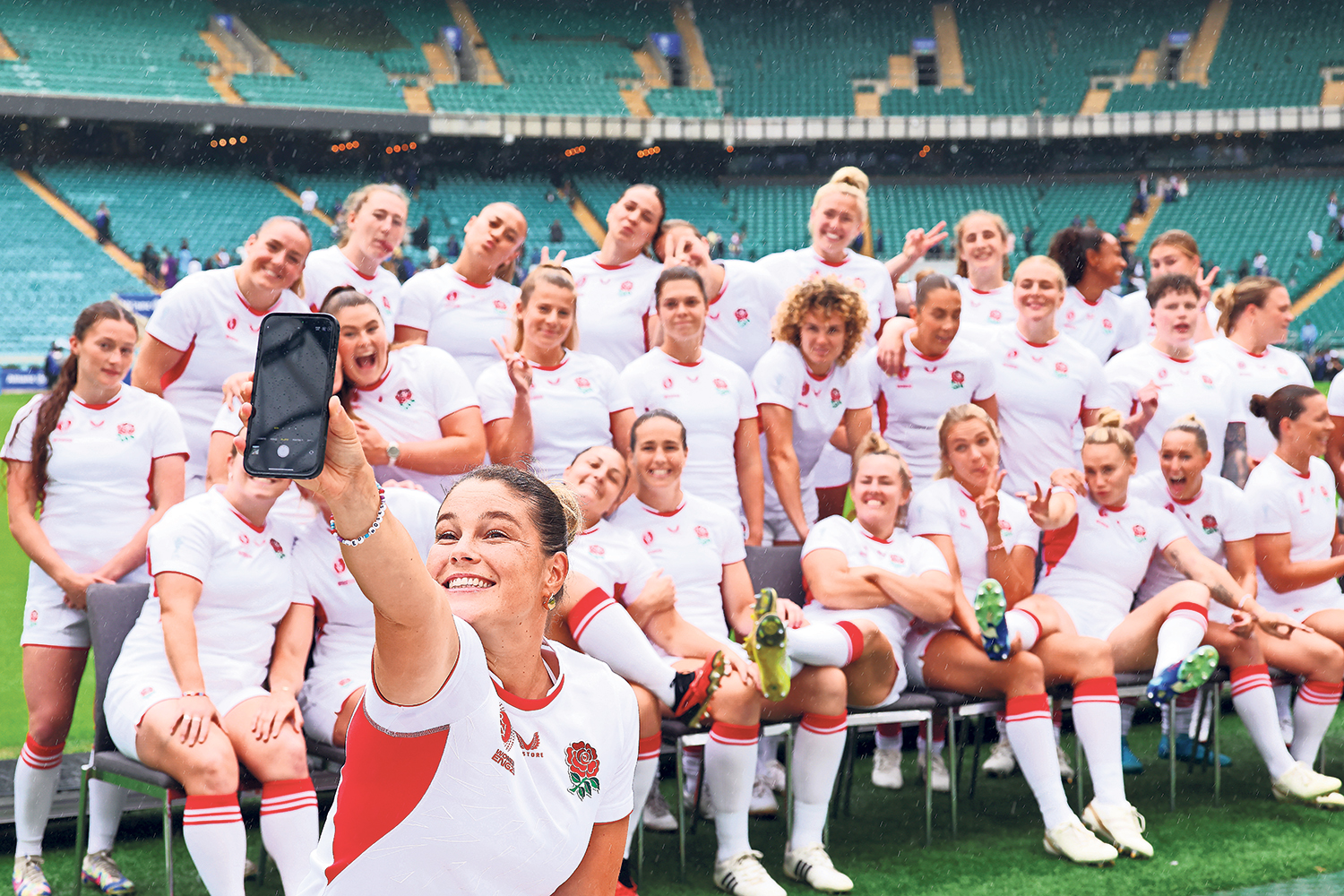After England booked their place in today’s Euro 2025 final with a dramatic 2-1 extra-time victory over Italy, a recently adopted refrain rang out from fans of the Lionesses. Chants of “Sweet Agyemang”, to the tune of Neil Diamond’s Sweet Caroline, echoed around the Stade de Genève on Tuesday.
While Sarina Wiegman’s side have struggled to inspire much confidence in their title defence, a bright spark has emerged.
With crucial equalisers in the semi-final and the quarter-final, 19-year-old forward Michelle Agyemang, who was born in Essex and is of Ghanaian heritage, has injected much-needed belief into the side at a time when defender Jess Carter has spoken out about racial abuse online and the team decided they will no longer take the knee before matches.
Having burst into the senior setup with a brilliant volley seconds after coming on during England’s 3-2 Women’s Nations League defeat to Belgium in April, Agyemang has risen rapidly. Three months later, she propelled England into another Euros final. Appearing off the bench in the 85th minute against Italy to replace captain Leah Williamson, she proved unfazed by the pressure.
“Sometimes, it only takes 10 seconds to make an impact,” Agyemang said from England’s base camp. “It’s easier to take the game by the scruff of the neck.”
Despite her rapid rise, Agyemang has stayed grounded. Her breakthrough feels inevitable. After her England debut, Brighton’s head coach, Dario Vidosic, who oversaw her loan spell there, said she had what it takes “to be one of the best strikers in the country” and would soon be a household name.
Agyemang scored five goals in 22 appearances for Brighton and now faces a fight to break into her parent club Arsenal. But her England form – three goals in four caps – suggests she is up to the challenge.
Her steely focus comes from a strong support system. Her father, brother and uncle have been in the stands for every game. Agyemang says she was aware of their pride in her first big tournament appearance in the 2-1 loss to France.
She said recently on the award-winning black female-led Goal Diggers Podcast that gospel music is her dressing-room soundtrack. Her go-to song is Shackles (Praise You) by Mary Mary – a motivational anthem.
Agyemang follows in the footsteps of other Ghanaian-heritage former Lionesses including Anita Asante and Rachel Yankey. Meanwhile, Philippa Jennings, a British Ghanaian contributor to the podcast, felt pride and poignancy watching the striker shine on the day Ghana lost a penalty shootout to Morocco in the semi-finals of the Women’s Africa Cup of Nations.
Newsletters
Choose the newsletters you want to receive
View more
For information about how The Observer protects your data, read our Privacy Policy
Agyemang’s surname translates to “saviour of a nation” in the Ghanaian Akan language.
“I feel incredibly proud,” Jennings said. “It’s encouraging to see the change because, as we’ve seen several times over the years with the men’s national team, black men are scapegoated when things go wrong and aren’t necessarily heralded when things go right.”
Jennings said she is encouraged by how Agyemang and her teammate Chloe Kelly have been celebrated. “It’s good to see Kelly and Agyemang viewed equally – one not being seen as more important,” she said.
Some fans took to social media to complain last week when the Royal Family posted a good luck message for the Lionesses on X which included photos of a dozen players, but no Agyemang.
Moyo Abiona, also a contributor to Goaldiggers, says Agyemang has sought guidance from former black Lionesses, including Rachel Yankey. The team has been criticised over the years for being overwhelmingly white. “She was figuring out how they dealt with the pressure of it. And I think that was important,” Abiona said. She also noted the burden of fitting a narrow public image. “Often black players have to be within this mould to be universally likeable.
“Michelle just seems to really care about football. Super humble, super gracious. But also, players can be outside that realm.”
Eartha Pond, a director of the Black Footballers Partnership, acknowledged the praise for Agyemang, but asked: how do we protect her from the inevitable lows?
“I was selected at youth level like Michelle, but with reflection, there was a lack of cultural competence to allow all the talents to come through. That seems to have changed now,” she said.
“If we want them to have a long career and play at that level, we’ve got to make sure we’re finding ways to support all our players.”
Abiona says Agyemang has sought guidance from former black Lionesses, including Yankey. “She was figuring out how they dealt with the pressure of it. And I think that was important.” She also noted the burden of conforming to a narrow public image. “Often black players have to be within this mould to be universally likable. Michelle just seems to really care about football. Super humble, super gracious. But also, players can be outside that realm.”
Whatever happens next, Agyemang has begun carving a path transcending football. For England, she is a much-needed spark. For many watching, she is the face of a more inclusive, hopeful future. Agyemang is not just a bright spark – she is the face of the future.
Photograph by Eddie Keogh/Getty


